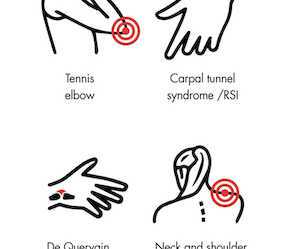
Today, the global workforce is taking mental health more seriously — a 2022 survey by market research and analytics company The Harris Poll found that 52 percent of employees consider mental health awareness in the workplace to be “very important” to them. However, while 81 percent of working adults agree that employers have an obligation to prioritise their employees’ mental health, as many as 77 percent report that the topic isn’t discussed enough.
The importance of mental health awareness and support in the workplace is only increasing, with the younger generations coming into the workplace especially concerned about wellbeing. Gen-Z — those born between 1995 and 2009 — is more likely to report mental health concerns than any other demographic, according to an American Psychological Association report. For employers, this issue is no longer simply a moral and ethical matter, but a crucial factor relating to employee retention and engagement.
However, when junior talent enters the workplace, understanding how to navigate workplace pressures — with many idiosyncratic to fashion and creative industries — and how to better protect themselves, can be a challenging hurdle to overcome.
To discuss how to protect mental health and wellbeing in the fashion workplace, BoF’s Sophie Soar moderated a panel talk at Graduate Fashion Week 2024, gathering advice and insights from: Calypso Barnum-Bobb, self-discovery coach and founder of People Like Us Retreats, who has worked with the likes of Adidas, Puma, Glastonbury Festival, London College of Fashion and more; Nicola Chen, head of creative at resale site Depop and co-chair of Depop’s Wellbeing ERG; Ella Morgan-Crosby, corporate HR director at Alexander McQueen; and Zoe Mallett, a trained psychologist, workplace happiness consultant and creator, who has worked with the likes of Nike, L’Oréal, Snapchat, Soho House and more.
Now, BoF shares insights from the panel discussion.
Understand workplace pressures idiosyncratic to the fashion industry
CBB: This industry is so competitive. The pace is so fast, the operating rhythm is much more intense than other places. The normalisation of how fast you have to move things, make decisions and how often you have to be available has a massive impact.
NC: The thought that you’re only as good as your next idea — that is a huge amount of pressure to work under. You can start to doubt yourself when you have that pressure of performing and achieving. Creative people have unique challenges because there’s no stop and start — it’s continuous. But you have to find time to stop.
ZM: You don’t give yourself enough grace when you’re stepping in from university and into your first role. You [typically] have so much more support when you’re in a university or a school system — you’re all of a sudden catapulted into a different world. You feel like everyone knows more than you.
Try and give yourselves grace — you’re not supposed to know everything, you’re supposed to be quite tired from learning new ways of working.
Take the time to check in with yourself
CBB: We can think that it’s indulgent to give ourselves five minutes of time every single day, but actually, the repetition of dedicating that time to yourself is where you start to notice patterns and where you start to notice differences.
ZM: Everybody is so individualistic — there isn’t a “one size fits all” [when it comes to mental health]. But there are generic things that happen, so […] start small, think about three core emotions: when do you feel happy, sad or stressed, and check in with yourself daily, weekly, monthly.
Then, reach out to colleagues and friends and employers. It takes a village to preserve mental health, but know those benchmarks for yourself.
Stay focused on your own goals and advocate for yourself
NC: Don’t focus on other people’s successes or their journeys — focus on yourself and then how you all come together. Comparing yourself to other people is so common in this industry, but when you let that go and focus on your own successes and your own achievements, not just your work but who you are as a person — that’s really valuable for your mental health.
You can’t compare yourself to how other people handle stress because there are all these external stimuli that people react to differently.
CBB: Advocate for yourself and be really specific. I think a lot of the time, we think our problems are really niche; when actually, they’re universal. So, having the courage to share with your line manager what you’re struggling with is important.
If you are a line manager, start a group and bring together more senior members of staff for specific areas that people need support with. Mental health is this phrase that we throw around — but I think, until we get specific with the things that people are struggling with, we can’t support them effectively.
If you are an employer, bring experts into workplaces so they can share their expertise, because a lot of the time the line managers — they’re amazing fashion designers, but they’re not incredible therapists.
ZM: […] Everybody in the team might be stressed but people in that team are going to react to that stress differently, depending on their upbringing, the economy, their previous experiences. You can’t compare yourself to how other people handle stress because there are all these external stimuli that people react to differently, because of their past experiences and several other factors.
Explore and leverage the resources available
EMC: For me, the number one thing you can do is speak up — don’t suffer in silence. If your company is lucky enough to have an HR department, I know I’m biassed, but they’re there for a reason. Befriend your HR partner — go for a coffee and talk to them. If you don’t feel comfortable raising some of the issues with your line manager, they can really be that go-between, that third party, a sounding board even.
Also, part of their role is to make sure that they can support you and point you towards the resources available to you, whether that’s access to counsellors or if it’s a retail business, those people signed up to The Retail Trust — they’ll have a huge amount of resources that can protect you.
Advocate for yourself and be really specific. I think a lot of the time, we think our problems are really niche, when actually, they’re universal.
ZM: Every single thing in the workplace can cause poor mental health if not executed properly. What’s important for people stepping into roles is being able to ask — what is set up to help with mental health? Asking those questions doesn’t make it look like you’re mentally ill — it shows that you have leadership skills or seniority skills, being able to put yourself first in the bigger picture sense.
Set feasible boundaries and stick to them
NC: I haven’t been good at setting myself boundaries in the past. The best way I do it now is, when I’m doing life stuff, no work stuff can permeate it. When I’m on holiday, I delete slack and move my email away so I don’t see notifications — because as soon as I think “Oh, I’ll check one email” — you end up checking all of them. So carve out that time and those boundaries and be strict with them.
EMC: Boundaries are critical but we have to be careful not to go too far in that, because sometimes we can limit our growth if we don’t seize that opportunity that is slightly outside of our job spec.
[…] When you go into an interview, it is also about interviewing the brand that you’re going to work with, and thinking about whether they’re a good fit for you and your wellbeing. It’s a two-way street.
ZM: If you’re having to push an employer to take mental health seriously, is that employer right for you? That’s something you should really consider.



